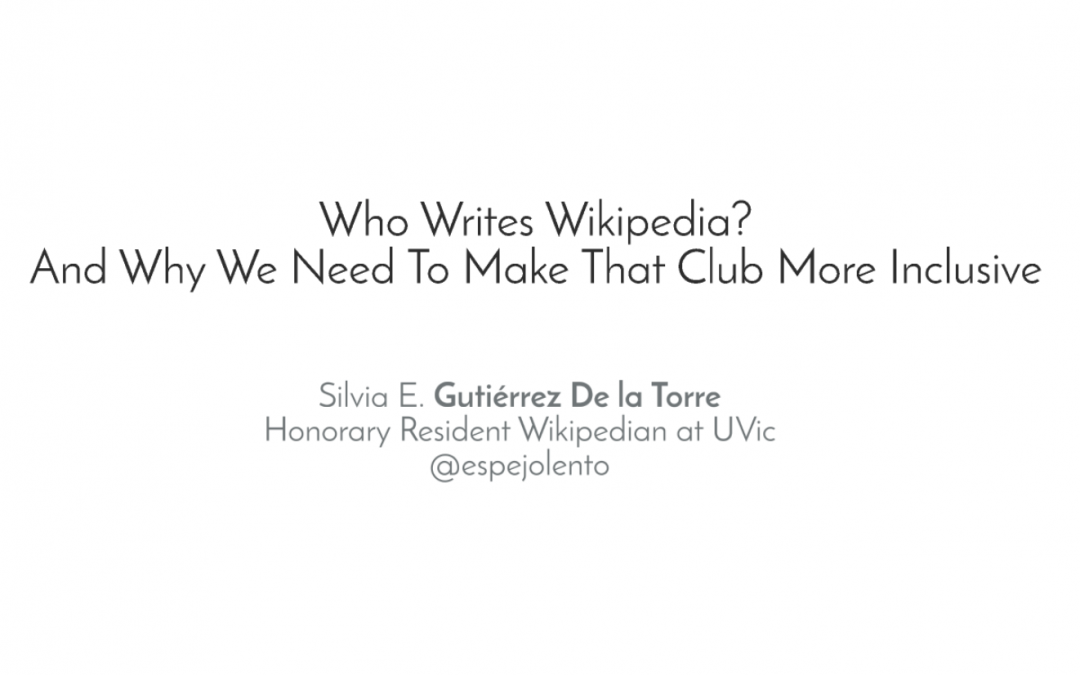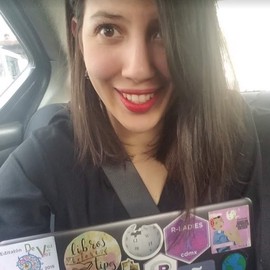Barriers to Diversity in Wikipedia: The Importance of the Worlds We Don’t Know About
October 21, 2020 @ 10 am (Pacific) via Zoom
Click here to see the slide deck for this talk.
We’ve seen monolithic narratives in action: they can form parties, they can create countries. However, in a world collapsing from climate change and social inequalities, we need to do better than that. We need to embrace diversity, and in order to care, we ought to learn. Wikipedia, as one of the most visited websites in the world, could be a good place to start: it is an open encyclopedia and it could entail those worlds we need to hear about. The bad news is it is not quite there yet. The good news is we can do something about it. In this talk I will address three barriers to diversity that are currently hindering the free Encyclopedia: the free-time and gender gap, the digital divide, and the lack of resources for certain subjects. I will present these problems in a propositive manner, hoping to share some ways we can use our privilege as students, faculty, and librarians to tear those barriers down as we try to build a world where many worlds are possible.
Silvia Gutiérrez De la Torre is the Digital Humanities Librarian at El Colegio de México in Mexico City. She is a Wikipedia and free knowledge enthusiast. Silvia led the Wikipedia-Academic Library liaison project, which was funded by the Wikimedia Foundation to increase the number and quality of Wikipedia articles on Mexican figures, culture and history. Under her leadership, academic librarians created more than 100 articles and improved more than 600 using library collections and databases. Silvia is also the cofounder of @RLadiesCDMX, the Mexico City chapter of RLadies, a global community that promotes diversity in the R programming language community.
This workshop is part of UVic’s Honorary Resident Wikipedian program, brought to you by the Electronic Textual Cultures Lab, and the University of Victoria Libraries.

